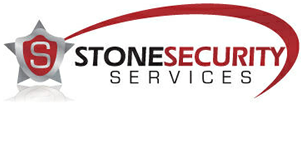 Event Security is a hot-button issue for everyone these days. The first family, the royal family, heck, even your own family has no doubt been touched by security concerns at home, school, work or on the road. Event marketers are no exception. From red carpet affairs to county fairs, trade shows to fashion shows, having the proper security measures in place can ease the minds of attendees, exhibitors, speakers and celebrity guests, and even reduce insurance costs.
Event Security is a hot-button issue for everyone these days. The first family, the royal family, heck, even your own family has no doubt been touched by security concerns at home, school, work or on the road. Event marketers are no exception. From red carpet affairs to county fairs, trade shows to fashion shows, having the proper security measures in place can ease the minds of attendees, exhibitors, speakers and celebrity guests, and even reduce insurance costs.
“Having event security sends guests the message that not only do you have their safety in mind, it tells them that the event is important enough to have security on hand,” says David Stone, ceo and founder of Stone Security Services, a former New York City detective and security expert whose company secures more than 500 events each year in Los Angeles, Miami and the Big Apple with event security agents, bodyguards and personal protection specialists. “This can be a great way to boost the prestige level of your event and to show others that you take event planning seriously enough to cover all contingencies.”
Event security is the one thing that planners and production companies tend to spend the least on, however. “But it is one of the most important things about your event,” Stone says. “The world security climate for the U. S. has changed. It’s unfortunate, but this is the time we live in.”
Here, Stone offers his top eight tips for event security in the modern world.
1. Enlist Expert Advice
Hire experts who know how to cope with large numbers of people and handle any situation or threat with a professional response that does not cause a scene. Ask for references and make sure they are properly insured. Many individuals state they have an event security company but don’t have insurance or experience.
2. Assess Your Event
Before requesting the number of event security guards you think you need, let the security expert assess your event based on capacity, attendees, venue and nature of your event to determine whether it is “high” or “low” profile experience.
“The organizer may describe the event as a product launch, but it could be for a sensitive product that may not be liked by certain people or groups. The same for charity events and fundraisers with corporate ceos and wealthy people in attendance,” Stone says. “Someone with a grudge against the company or the executive could try to come in and protest, disrupt or do harm.”
3. Prepare for Protest
Always be clear with the event security expert if the client sponsoring the event may draw hatred or negative feedback toward their mission. People may launch an attack against a company they feel discriminates against its workers, doesn’t pay them enough, mismanaged their retirement portfolios or any other reason they feel is justified.
Have the event security experts liaise with the local police department and let them know who and what is happening.
4. Screen Guests and Staff
Make sure all guests are properly screened and checked in with proper credentials. “Are you trying to prevent party crashers from sneaking in and having a few shrimp or bashing for a free beer, or are you trying to prevent a more serious disruption?” says Stone. The event security staff will familiarize themselves with the guest list and turn away those who have not been formally invited.
Additionally, have your event security partner screen all vendors and their employees supplying services, to see if they are biased towards the event.
5. Skip the Surprise Searches
Invitations should disclose that “all persons and property are subject to search” and proper ID is required. That way there will be no surprises at the door. Some events are no-cell phone zones. “We take their cell phones away so they can’t photograph what is going on, or post it to a social media site,” Stone says. “We check them with a coat-check ticket and they get it back on their way out.”
6. Budget for Safety
In today’s world climate of terrorism, for high-profile events save your money on the shrimp and lobster and direct it towards event security, walk-through metal detectors, K-9 sweeps and more. “If you shop by price, you will get your unwanted guests and sleeping guards,” Stone says. “Budget is very important. People need to know what they are getting themselves into and what the scope of their event is.”
A red-carpet affair with top-level security normally requires “platinum” level event security from a top-level provider with mostly off-duty police officers on hand. A middle-level package involves licensed security guards, perhaps someone who works as a janitor during the day and moonlights as a security guard by night. The lowest level provides fire guards, which are required by law and varies from state-to-state.
7. Have Medical Support
For large capacity events always have an emergency medical crew onsite for first response and to handle the unexpected food allergy, medical condition, heart attack or slip and fall head injury.
8. Create Clear Credentials
Always make sure that staff is clearly identified as staff, and not guests, with clear description of credentials.
by Sandra O’Loughlin
